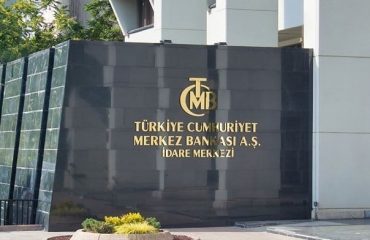

Turkish Industry and Business Association TUSIAD were known for its political-social messages to governments in the past. It was not possible to separate the economy from the law, politics, and foreign policy. However, President Tayyip Erdoğan began to perceive these messages as a threat to his power even when he was the prime minister. After all, TÜSİAD’s public warning to Bülent Ecevit’s government in the late 1970s was considered a turning point on the way to the 1980 military coup. When Erdoğan started to make his “Know your place” statements, the messages given by either the Chairman of the bosses’ club or the Chairman of the High Advisory Council (YİK) began to change, soften and become apolitical.
For a while, TÜSİAD only spoke about issues directly related to the economy with implicit and indirect sentences. It was almost as if the bosses had entered a fast of silence. When they attempted to say something, statements such as “You are making good money thanks to us” statements by Erdoğan’s AKP officials. It was big business. TÜSİAD member companies cover 85% of Turkey’s foreign trade (excluding energy imports), pay 80% of corporate tax, and provide 50% of employment (excluding public and agricultural sectors).
We witnessed the end of this silence fast at the 19 October meeting.
Messages will not make Erdoğan happy
The messages of Tuncay Özilhan, the Chairman of the High Advisory Council, and Simone Kaslowski, the President of TÜSİAD, who took the podium afterward, contained radical criticisms of the current political and economic environment, without mentioning Erdoğan or the government, but simply saying what should be done and how. As a matter of fact, since the beginning of this year, TUSIAD’s messages began to harden and become re-politicized, but they were again given over current economic problems.
This time, the most crucial thing that was said directly about the economy was the independence of the Central Bank. The messages by the two senior businessmen have mainly been based on the full implementation of the “secular, democratic, social state of law” principle written in the preamble of the Constitution. Secularism could not be abandoned as the cement of the country and the Republic, the foundation of freedom of religion and conscience, and the principle of equal citizenship was secularism. He was also the guarantee of the presence of women in all fields; It was wrong to leave the Istanbul Convention. The rule of law, the independence of the judiciary, the openness of effective remedies, pluralist and participatory democracy, the measurement of the European Convention on Human Rights, the separation of powers, the strengthening of checks and balances, transparency, accountability… The list went on.
It is hard to imagine that Erdoğan and the AKP officials will welcome these messages and leave them unanswered.
On the other hand, the TÜSİAD board and YİK members have sufficient experience to predict and risk the possible consequences of their ascent.
Winds of change also affect TÜSİAD
Giving a lecture after Özilhan and Kaslowski, world-renowned economist Daron Acemoğlu spoke out about the relationship between democratic reforms and a healthy developing economy. Justice was not just judicial justice. Inequality in income distribution, inequality between regions, inequality of gender, inequality of opportunity, inequality in education, destruction of the environment with the greed for profit were also parts of the concept of justice.
Ömer Koç, who spoke at a meeting of Turkey’s biggest holding of companies the Koç Group on October 15, stated that “essential reforms” are needed for the economy to get out of the bottleneck and take a healthy course.
The report “Building the Future with a New Approach”, which was launched by TÜSİAD on the occasion of its 50th anniversary at the 19 October meeting, is actually based on how it can break the bad luck of Turkey, and what it should do to break it. Concepts of freedom of expression, green economy, women’s rights, disability rights are promoted as measures of development. This transformation of big business owners, which -like successive governments- described development only in terms of growth figures for years, is important even if it is at the level of discourse for the time being.
All these show us that the winds of change have started to affect the big business circles, and they also started to take some risks against possible consequences for voicing their concerns.


